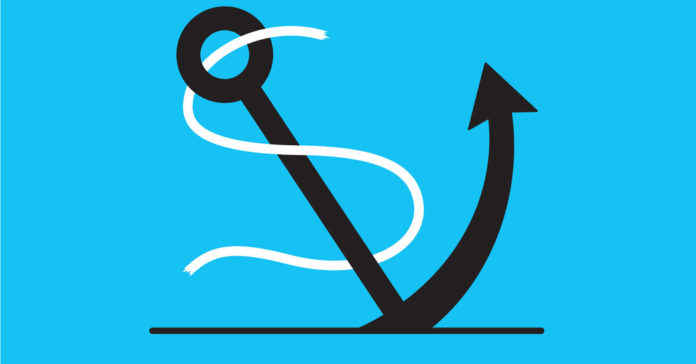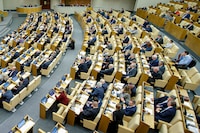
What’s Up? (Sept. 19-25)
Planning to Pull Back
The Federal Reserve indicated on Wednesday that it might soon ease measures it put in place to support the economy since the depths of the pandemic downturn. Jerome H. Powell, the Fed chair, said the central bank’s monthly purchases of $120 billion in government-backed bonds “still have a use, but it’s time for us to begin to taper them,” and indicated that it might slow the program as early as November. Meanwhile, half the Fed’s policymakers said they expected to raise interest rates next year.
New Protections for Workers
The New York City Council set new rules for how app-based delivery companies must treat their delivery workers in first-of-its-kind legislation. The package of laws requires the companies to disclose their gratuity policies, gives delivery workers more control over where they work and requires restaurant owners to make bathrooms available to delivery workers. Unlike laws in other cities and states that have spurred battles with gig economy companies, the New York legislation stops short of challenging the independent contractor status of delivery workers. Delivery companies like Grubhub, DoorDash and Uber Eats were not the only tech companies facing new checks on their labor practices. California’s governor signed a bill that restricts warehouse employers from setting productivity quotas that prevent workers from taking breaks or following health and safety laws, a measure that could alter work at Amazon warehouses.
Boosters and Other Vaccine Business
The Food and Drug Administration on Wednesday authorized booster shots for people over 65 who received the Pfizer-BioNTech coronavirus vaccine, as well as for people who are at high risk of becoming severely ill or work in certain high-risk jobs, such as teaching or those in grocery stores. Hours later, the director of the Centers for Disease Control and Prevention overruled a recommendation by an agency advisory board and endorsed the additional doses for frontline workers. The moves added to a debate about whether booster shots are necessary for healthy Americans, particularly when much of the world remains unvaccinated. President Biden set a goal last week to vaccinate 70 percent of the world by next year as health officials abroad increase pressure on American drug companies to share their vaccine formulas with manufacturers in other countries.
What’s Next? (Sept. 26-Oct. 2)
A Debt Deadline Looms
Thursday is the deadline for the Senate to pass a bill that would avert a partial government shutdown the next day. A bill that the House passed last week would keep the government funded through early December and lift the debt ceiling before the government hits its limit on borrowing, which could be as soon as next month. House Democrats bundled the spending measure and debt-limit rise together in hopes of pressuring Republicans to drop their opposition to raising the debt ceiling, but Senate Republicans have said they’re standing firm. To avert a government shutdown or the government’s first-ever default on debt, Democrats and Republicans could vote before the Thursday deadline to keep the government open, leaving Democrats to pass the debt-limit rise through a process that bypasses the filibuster but is more time-consuming. Or they could make raising the debt limit part of their $3.5 trillion social policy bill.
Taxing the Wealthy
President Biden continued his push to increase taxes on the wealthy as he seeks to unify Democrats around his infrastructure plan. Last week, White House economists released an analysis that estimated an effective tax rate for the wealthiest 400 households of just over 8 percent, lower than the average rate of about 14 percent for all taxpayers. To finance his plans to improve the social safety net, Mr. Biden has proposed raising the capital gains tax on profits from selling assets to match the rate on wage income, and eliminating a provision that wipes out investment gains for income tax purposes when assets are inherited. But a tax plan approved in the House stopped short of both proposals. (It is still likely to change.) Some Democrats have balked at Mr. Biden’s proposals while others have argued they don’t go far enough. Progressive senators criticized the House tax plan for omitting a wealth tax, which would tax the values of billionaires’ assets.
The Evergrande Problem
The huge Chinese property developer Evergrande is hovering near financial collapse. The firm appeared to miss a deadline for an $83 million interest payment on Thursday, but has a 30-day grace period before the missed payment results in a default. That possibility has roiled global financial markets and angered suppliers, home buyers and employees who have demanded their money. Markets have steadied amid reassurances from China that it can contain a crisis. But it still wasn’t clear whether China would directly bail out Evergrande or what Evergrande’s collapse would mean for China’s economy.
What Else?
Facebook’s chief technology officer will step down next year. China banned cryptocurrency transactions and issued a nationwide ban on cryptocurrency mining. Delta Air Lines wants airlines to create a national “no fly” list for unruly customers. And the United States will lift travel restrictions on visitors starting in November, as long as they show proof of vaccination and a negative coronavirus test.








